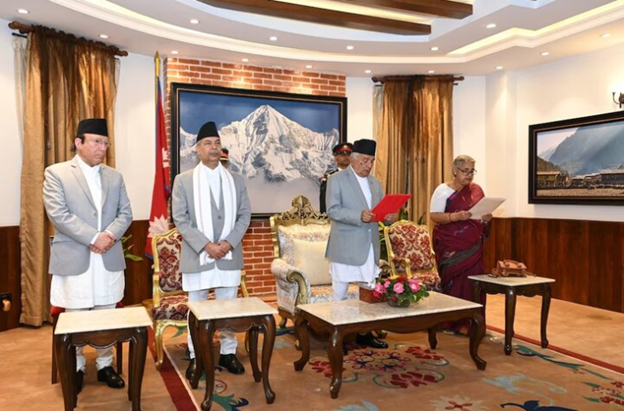Nepal’s parliamentary elections are set for March 5, 2026, as announced by President Ramchandra Paudel following political unrest.
Kathmandu
Nepal’s next parliamentary elections will be held on March 5, 2026, President Ramchandra Paudel’s office has announced, following a week of violent protests that led to the resignation of KP Sharma Oli and Sushila Karki taking over as the country’s first woman prime minister.
President Paudel, while dissolving the House of Representatives on the recommendation of the newly-appointed prime minister on Friday, said the next parliamentary election would be held on 5 March.
Former Chief Justice Karki, 73, was sworn-in as the country’s first woman prime minister, ending days of political uncertainty after the abrupt resignation of Oli this week following wide-spread anti-government protests against a ban on social media and alleged corruption.
Oli quit on Tuesday shortly after hundreds of agitators entered his office demanding his resignation for the death of at least 19 people in police action during Monday’s protests.
The prime minister will form a small Cabinet on Sunday, two days after her swearing-in ceremony, as offices are closed on Saturday.
Karki will hold some two dozen ministries, including Home, Foreign Affairs and Defence. Sources at the President’s Office said that the PM will form a council of ministers with the inclusion of a small number of ministers on Sunday, when she will assume office.
As the Prime Minister’s Office in Singhdurbar Secretariat was set on fire during the two-day agitation, the newly-constructed building for the Home Ministry within the Singhdurbar complex is being prepared for the Prime Minister’s Office, according to government sources.
Removing the ashes and cleaning are being done in the surrounding areas of the building to shift the Prime Minister’s Office there.
Meanwhile, Prime Minister Karki on Saturday visited the Civil Hospital in Baneshwor area of Kathmandu where dozens of people injured during the agitation are undergoing treatment.
Nepal’s major political parties and apex lawyers’ body have strongly criticised the president’s decision to dissolve Parliament, describing the move as “unconstitutional”, “arbitrary” and a serious blow to democracy.

